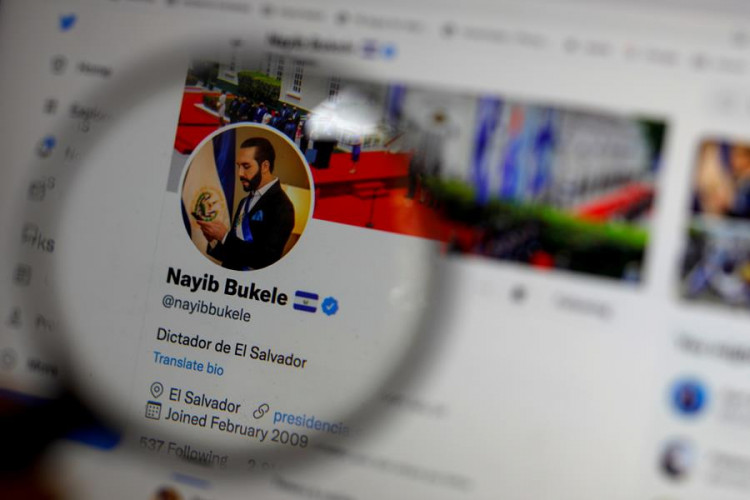El Salvador's bitcoin-promoting president changed his Twitter profile description to "dictator," in an apparent joke that seemed to have no effect in dispelling concerns about his growing clout in the Central American nation.
President Bukele, 40, a heavy social media user, changed his Twitter profile late Sunday to read "Dictator of El Salvador," in what looks to be an attempt to ridicule his detractors who claim he is having "autocratic tendencies."
It was not immediately clear if President Nayib Bukele's Twitter account had been hacked. The Presidential office did not respond to requests for comment regarding the profile change.
After Bukele's description changed, he continued commenting on Twitter normally Monday about bitcoin. The price and potential of the digital asset class appears to engross the President, and he made the crypto the official currency of El Salvador, the first nation to do so.
El Salvador has bought 150 more bitcoins, bringing the country's total inventory of the crypto to 700, or around $31 million, Bukele disclosed in a tweet, Monday.
Erika Guevara-Rosas, director of human rights group Amnesty International for the Americas, and a Bukele critic, said the President's use of "mocking language" showed his disrespect for those who question or criticize him constructively, and urged Bukele to build bridges rather than courting dispute on social media.
"Changing his Twitter profile to call himself 'Dictator of El Salvador' is a very childish act on the part of the president," legislator Johnny Wright Sol, a member of the opposition Nuestro Tiempo party, said in quotes by The Associated Press.
Bukele's administration was criticized by the U.S. this month after El Salvador's Supreme Court judges recently selected by his party decided the president is qualified to seek a second consecutive term, which Washington views as illegal.
Last week, thousands of people converged in the country's capital city for the first mass demonstration against Bukele, who protesters say has gained much power, diminished the court's independence, and may seek re-election.
Meanwhile, the International Monetary Fund (IMF) and the World Bank, as well as major financial institutions like Bank of America and JPMorgan, have expressed concerns regarding El Salvador's new bitcoin law, citing economic and financial risks.





